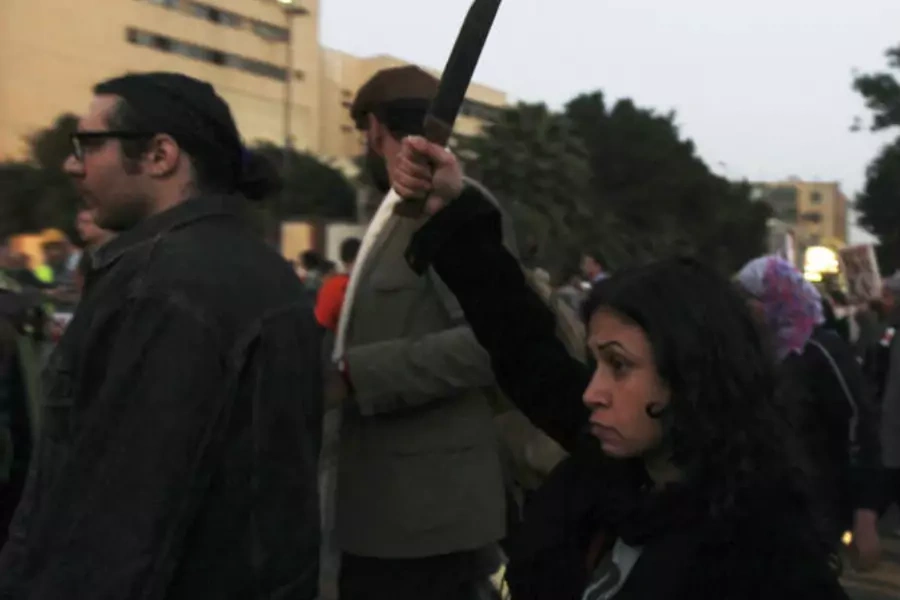More on:
This post is written by Allison Nour, a research associate at the Council on Foreign Relations.
In a powerful scene from the 2010 Egyptian film “678,” a veiled woman boards a crowded public bus on her way to work, squeezing through a mass of passengers in search of a space where she will feel least vulnerable to attack. Inevitably, though, groping hands reach her and she has no choice but to endure or try to quietly move away without drawing attention.
For many women in Egypt, this scene is far too familiar—warding off potential harassment has long been a part of their daily lives. A study conducted in 2008 found that 83 percent of Egyptian women have been sexually harassed in public and nearly half described the harassment as occurring on a daily basis. Few women file formal complaints against attackers, either out of fear, embarrassment, or the recognition that the police are unlikely to pursue such cases.
But in recent months, this atmosphere of impunity has combined with Egypt’s volatile politics to produce a spike in harassment and a new trend of violent sexual attacks. These mob attacks are directed primarily against women demonstrators in Tahrir Square. On the second anniversary of the Egyptian uprisings on January 25, at least nineteen female demonstrators were sexually assaulted. The reports are shocking: In first-hand accounts, women have described being suddenly set upon by large groups of men, groped, stripped of their clothing, and raped. At least one woman was sexually assaulted with a bladed weapon.
Yet the Morsi administration has done absolutely nothing to respond to this unprecedented, intensely violent, and organized wave of attacks. Inconceivably and unconscionably, the Egyptian president has yet to utter a public word to acknowledge the problem. His prime minister, Hisham Qandil, has offered only a passing reference to possible new legislation to address the issue. With clear video evidence of attacks shown on television and online, the government either lacks the will or the ability to confront the situation.
More unfortunate than the government’s failure to act is the exacerbation of the problem by some in government and among the Salafi leadership. During a meeting of the Shura Council last week, elected representatives—most of them Islamists—blamed the victims for their attacks. As a Salafi member of the Asala Party put it, “Women sometimes bring rape upon themselves by putting themselves in positions which make them subject to rape.” In a video posted to YouTube, an Egyptian Salafi preacher declares that women protesting in Tahrir Square “want to be raped” and are attending the demonstrations either because they are “Crusaders” or “widows who have no one to control them.”
These comments, while shocking to many Egyptian observers, unfortunately reflect the sentiments of many others in the country. Many Egyptians still believe that the blame for sexual harassment falls largely on women who fail to behave “modestly.” At best, the Morsi administration’s failure to address the problem stems from a belief that sexual harassment is a natural consequence of women participating in demonstrations. At worst, the government is complicit in the attacks as a means to tamp down turnout at demonstrations. Either way, with economic turmoil and electoral debates dominating public debate, the issue is unlikely to become a priority anytime soon.
The women at the center of “678”—fed up with feeling helpless in the face of harassment in the public domain—decided to fight back by carrying weapons and stabbing their attackers. While the story was powerfully portrayed, I remember thinking their approach was unlikely to catch on in real life. But as the problem of sexual harassment intensifies with no end in sight, I couldn’t help but think of the film as women brandished knives at a recent anti-harassment demonstration in Talaat Harb Square. As with so many of the challenges facing Egypt, if left unaddressed by the powers that be, those who suffer most will find a way to fight back, even if doing so means drawing the country further into chaos.
More on:
 Online Store
Online Store
